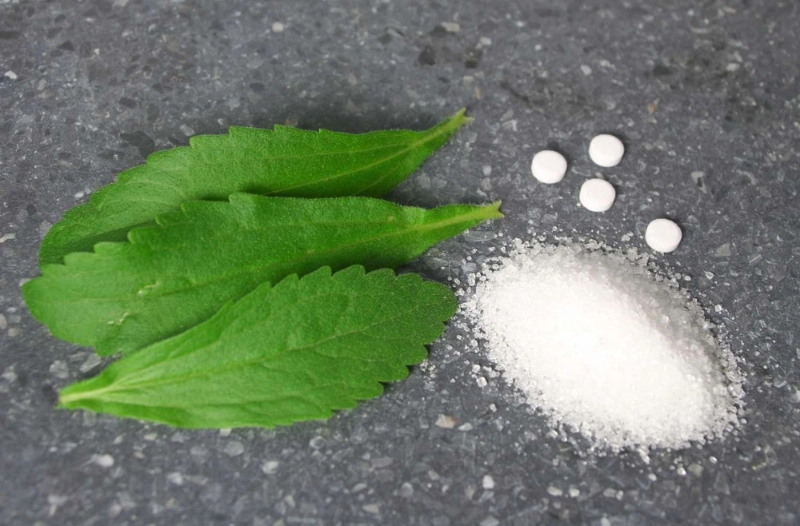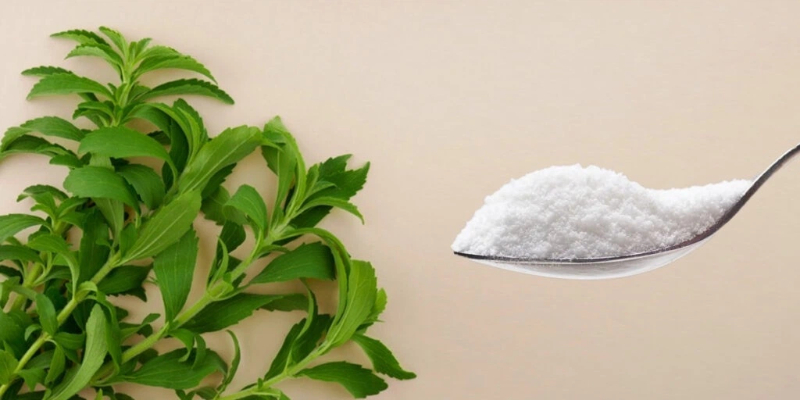Views: 222 Author: Sara Publish Time: 2025-09-10 Origin: Site








Content Menu
>> Blood Sugar Regulation and Diabetes Support
>> Weight Management and Obesity Prevention
>> Antioxidant and Anti-inflammatory Effects
● Safety and Potential Side Effects
● Practical Use of Stevia as a Sugar Substitute
● Frequently Asked Questions (FAQ)
>> 1. Is stevia safe for people with diabetes?
>> 2. Does stevia cause any side effects?
>> 3. Can stevia be used during pregnancy?
>> 4. How does stevia taste compared to sugar?
>> 5. How does stevia affect gut health?
Stevia is a natural, zero-calorie sweetener extracted from the leaves of the Stevia rebaudiana plant, native to South America. It is celebrated for being hundreds of times sweeter than sugar yet containing no calories, making it a popular alternative sweetener for health-conscious consumers worldwide. Given rising concerns about excessive sugar consumption and the adverse health effects linked to it, stevia has emerged as a preferred choice in food, beverage, and healthcare industries. Scientific evidence supports stevia as a safe and effective sugar substitute, with numerous beneficial effects on blood sugar regulation, weight management, antioxidant activity, and gut health. However, like any food ingredient, proper use and consideration of individual tolerance are essential.

Stevia comes from the plant Stevia rebaudiana, whose leaves contain naturally occurring compounds known as steviol glycosides — primarily rebaudioside A (Reb-A) and stevioside. These compounds provide an intensely sweet flavor without calories or carbohydrates. Stevia products vary from powdered extracts, liquid drops, to tablets, often blended with other sweeteners like erythritol for enhanced taste and texture. Compared to table sugar, stevia is about 200 to 400 times sweeter. It is considered a natural, non-nutritive sweetener since it provides sweetness without adding energy (calories).
Stevia's acceptance has grown with approval from global regulatory agencies; purified steviol glycosides have been designated "generally recognized as safe" (GRAS) by the U.S. Food and Drug Administration (FDA). This status excludes whole-leaf and crude stevia extracts, which lack sufficient safety data.
One of the most significant advantages of stevia is its role in supporting blood sugar control. Unlike sugar, stevia does not raise glucose or insulin levels, making it ideal for people with diabetes or at risk of metabolic disorders. Several animal and human studies demonstrate that stevia consumption improves insulin sensitivity, boosts insulin secretion, and lowers glucose levels naturally without eliciting hypoglycemia.
Stevia leaf extracts have been shown to stimulate pancreatic beta cells, increasing insulin release in response to glucose. Research reports that diabetic rats receiving aqueous stevia extracts had notably lower blood glucose and higher insulin levels than controls. Furthermore, stevia inhibits enzymes like alpha-amylase and alpha-glucosidase, which slow carbohydrate absorption and reduce post-meal blood sugar spikes.
Stevia's zero-calorie sweetening property offers potential benefits for weight control. Sugar substitution with low- or zero-calorie sweeteners can reduce overall energy intake, assisting in weight loss or maintenance efforts. Animal studies reveal that stevia supplementation reduced body weight gain and improved lipid profiles by lowering total cholesterol, triglycerides, and LDL cholesterol while increasing HDL cholesterol.
While human research is still evolving, stevia does not appear to increase appetite or hunger signals, unlike sugar, which may trigger overeating. Its use in place of caloric sweeteners lowers calorie consumption without impacting satiety negatively, supporting healthier eating habits.
Stevia also offers antioxidant properties. Laboratory studies show that stevia extracts reduce oxidative stress markers like lipid peroxidation and nitric oxide levels, protecting cells from free radical damage. This antioxidant activity contributes to the overall health properties of stevia, potentially decreasing inflammation and cellular damage.
Unlike some artificial sweeteners that may disrupt gut microbiota, emerging research finds stevia to be neutral or even beneficial for gut bacterial balance. Its consumption does not alter the composition or diversity of gut microbiota and may increase beneficial short-chain fatty acids like butyric acid, which support colon health and gut barrier function.

Purified stevia glycosides, especially Reb-A, are safe to consume within established acceptable daily intake (ADI) levels—typically up to 4 mg/kg body weight per day as steviol equivalents. However, some considerations include:
- Digestive Tolerance: Some stevia products contain added sugar alcohols (such as erythritol), which may cause bloating, gas, or diarrhea in sensitive individuals.
- Blood Pressure: Stevia might have a mild blood pressure-lowering effect. Those with hypotension or on blood pressure medications should use it cautiously.
- Pregnancy and Lactation: Highly purified forms are generally regarded as safe during pregnancy, but raw or crude forms of stevia are discouraged due to insufficient safety studies.
- Taste and Aftertaste: Stevia can have a subtle licorice or bitter aftertaste for some individuals, which may affect acceptance.
- Hormonal Concerns: While some have hypothesized endocrine effects based on steviol's chemical structure, current human studies do not confirm significant hormonal disruption.
In culinary applications, stevia can replace sugar in beverages like tea, coffee, and lemonade, as well as in many baked goods. Given its intense sweetness, only a small amount is needed—often one pinch equates to about one teaspoon of sugar. Recipes may require adjustments in moisture or bulking agents because sugar contributes to texture and browning in baking.
For best results, use high-quality purified stevia extracts and consider blending with other natural sweeteners or bulking agents to balance flavor and improve product characteristics.
Stevia is a natural, zero-calorie sugar substitute with an impressive profile of health benefits. Supported by extensive scientific research, it is generally safe and effective for managing blood sugar, supporting weight control, reducing oxidative stress, and maintaining gut health. Purified forms of stevia are approved by regulatory bodies worldwide and offer a promising alternative to high-calorie sugars and artificial sweeteners. While mild digestive or taste-related concerns exist for some people, stevia remains a valuable tool for healthier dietary choices and disease prevention in food, beverage, and healthcare sectors.

Yes, stevia does not raise blood glucose or insulin levels, making it safe for people with diabetes. It may even improve insulin sensitivity and help regulate blood sugar naturally.[1][3][4]
Stevia is generally well-tolerated, though some individuals might experience digestive discomfort from added sugar alcohols in commercial products. It may lower blood pressure, so caution is advised for those with hypotension.[3][1]
Highly purified stevia extracts like Reb-A are considered safe in moderation during pregnancy. Raw or crude stevia forms are not recommended due to a lack of conclusive safety data.[3]
Stevia is intensely sweet but may have a mild licorice or bitter aftertaste for some people. Taste preference varies, so it is best to try small amounts first.[3]
Unlike some artificial sweeteners, stevia does not negatively impact gut microbiota and may promote beneficial bacterial activity and fatty acid production, supporting gut health.[6]
[1](https://pmc.ncbi.nlm.nih.gov/articles/PMC8600158/)
[2](https://pmc.ncbi.nlm.nih.gov/articles/PMC4890837/)
[3](https://www.webmd.com/food-recipes/what-is-stevia)
[4](https://health.clevelandclinic.org/what-is-stevia)
[5](https://www.sciencedirect.com/science/article/abs/pii/S187140212400153X)
[6](https://www.news-medical.net/news/20240122/Sweetener-Stevia-does-not-alter-gut-microbiota-composition-confirms-new-study.aspx)
[7](https://www.sciencedirect.com/science/article/abs/pii/S0924224420304593)
